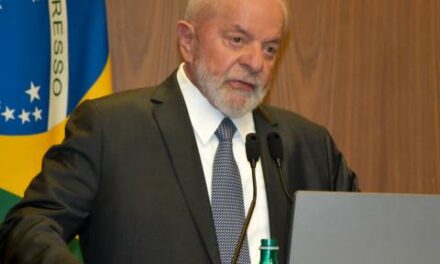We support our Publishers and Content Creators. You can view this story on their website by CLICKING HERE.

Three years after the program was first approved, Michigan opened its first electric vehicle charging station as a part of the National Electric Vehicle Infrastructure (NEVI) Grant program.
In Lansing, the station was built in partnership with Rivian Adventure Network.
The state is set to receive $110 million in federal monies from NEVI through 2026, all meant to fund the installation of public electric vehicle charging stations across the state.
The NEVI program is a national program funded by the federal 2021 Bipartisan Infrastructure Law and dedicates $5 billion to build a nationwide network of public EV charging stations.
According to the Michigan Department of Transportation, seven other charging stations are in the design phase, expected to open in early 2025. The majority, up to 80%, of the funding for each station will be allocated from the NEVI program.
While the program is expected to fund about 100 charging stations, the state has announced only 74 in either round one or round two of the program.
It is unclear if there will be more rounds, with MDOT stating it “anticipates multiple procurement rounds over the life of the NEVI program.”
This is just one of many electric vehicle programs or credits currently available in Michigan, which are all part of the state’s plan “to build out the infrastructure to support 2 million EVs on Michigan roads by 2030.”
“MDOT is committed to enhancing the charging network statewide to support our EV users,” said State Transportation Director Bradley C. Wieferich. “Thanks to the NEVI program, we can expedite this network.”
Yet, experts are skeptical of the state’s ability to meet the 2030 goal. Currently, the state reports 1,700 charging locations across Michigan. To support its 2030 goal, “Michigan will need approximately 10,000 DCFC and 90,000 Level 2 chargers.”
Jase Bolger, policy consultant for the West Michigan Policy Forum and former Republican speaker of the Michigan House, told The Center Square he believes this is not how the taxpayers’ money should be spent.
“When you look at the dollar spent for a charging station . . . it’s the kind of numbers that only special interests could love and only bureaucrats could justify,” Bolger said. “It’s absolutely offensive to take the people’s money and put it to work against what they’re saying in the marketplace.”
Though the state has a goal of infrastructure for two million electric vehicles in Michigan by 2030, currently only 50,000 are registered in the state.
Aaron Viles, the senior director of campaigns at the Electrification Coalition, told The Center Square the state should be doing more.
“Michigan has taken a number of steps to support getting more EVs on the road, but there’s definitely more to do in order to meet the goal of two million EVs,” Viles said. “The future of the auto industry is electric, and it’s critical policymakers support and defend domestic manufacturing in order for Michigan to continue its leadership role. We’ve advocated for EV policies that support ever-cleaner transportation fueling options while allowing drivers to realize the savings of charging up their car instead of filling it up.”
So far, the NEVI program has seen only 40 charging stations opened up across the country, with 849 conditionally awarded. That means each charging port cost approximately $163,5000 to install, according to NEVI.
“These are only the first handful though. Most are to be built in the second half of the decade,” said Secretary of Transportation Pete Buttigieg in response to backlash over the success of the program.
Tudor Dixon, 2022 Republican gubernatorial candidate, told The Center Square she believes the program has been a “pathetic failure and a total misuse of taxpayer dollars.”

 Conservative
Conservative  Search
Search Trending
Trending Current News
Current News 





